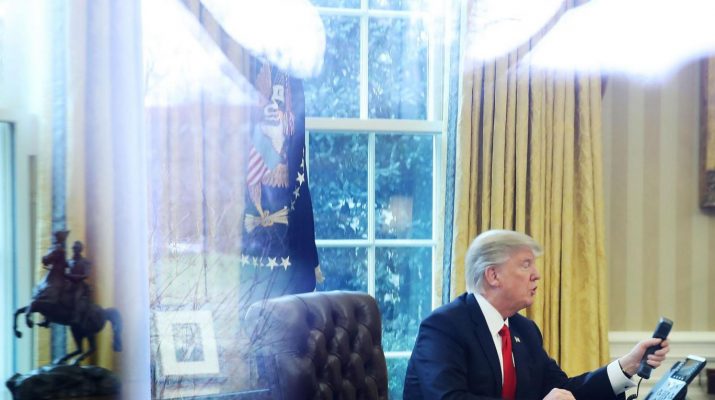The president’s unprecedented Twitter use – which he has said is “modern day presidential” – has landed him a range of criticism in recent weeks.
But the new lawsuit actually focuses not on his tweets but something else more private: his blocking critics on the site.
A group of tweeps blocked by President Trump has filed a lawsuit against him.
The seven blocked Twitter users claimed that the president blocking of users on the social network is unconstitutional.
On Tuesday, seven individual defendants and the Knight First Amendment Institute at Columbia University filed suit against Trump, press secretary Sean Spicer and Dan Scavino — the White House director of social media.
The suit argues that Twitter is a public forum under the First Amendment, and because the president’s Twitter (@realDonaldTrump) is used for official government announcements, the tweets should be accessible to everyone. The suit asks the president to unblock the users.
“Twitter enables ordinary citizens to speak directly to public officials and to listen to and debate others about public issues, in much the same way they could if they were gathered on a sidewalk or in a public park, or at a city council meeting or town hall,” the lawsuit said.
White House Press Secretary Sean Spicer and the president’s social media director Daniel Scavino are also named in the lawsuit.
Last month, Mr Spicer said Mr Trump’s tweets were considered “official statements by the president of the United States”.
The president’s @realDonaldTrump Twitter account has 33.7m followers, while the official @POTUS account has 19.3m.
Jameel Jaffer, the institute’s director, said dozens of people reached out after his organisation told the White House three weeks ago that it wasn’t permitted to block individuals from following the president’s 8-year-old “realdonaldtrump” account.
Trump doesn’t seem to be the only politician trying to limit his audience. Jaffer said numerous people have said they were blocked from the accounts of Republican and Democratic politicians after posting critical comments.
A federal judge in Washington, D.C., recently ruled that a local official’s Facebook account was a public forum under the First Amendment, but higher courts have not yet addressed the issue, Jaffer said.
“It’s fair to say that this is a new frontier,” Jaffer said. “The First Amendment principle is well-settled, but the applicability of that principle to this context isn’t an issue that the courts have yet had many occasions to address.”

